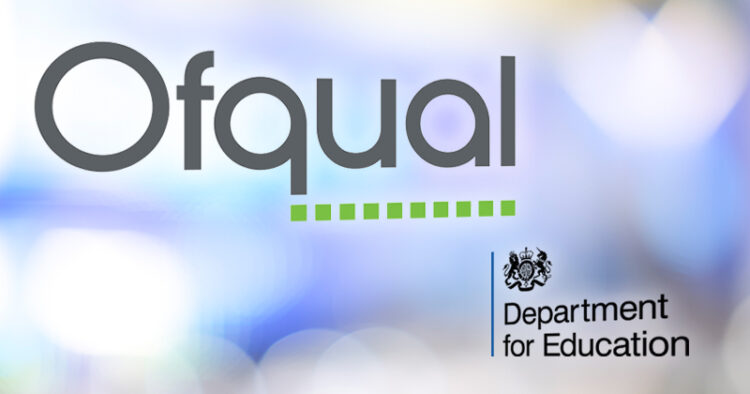By Sheila Mckenzie-
A third of school staff in the UK felt “undue pressure” was heaped on them when issuing exam grades in 2020, according to an Ofqual survey.
Teachers across the country were asked to award appropriate grades to pupils after the British government cancelled examinations to prevent the potential spread of the coronavirus. The professional expertise of teachers would take into account mock exams , the overall performance of pupils during the year, and past academic outcomes from the school.
exams regulator report on a survey which includes interviews conducted with school staff after the grading process in 2020, revealed the pressure a lot of teachers faced from parents to award favourable grades to their pupils.
The findings are very disappointing and casts a dark shadow over the integrity of exam grades awarded in 2020.
Senior leaders also pressured teachers to either award higher or lower grades than they otherwise were prepared to do.
The revelations reveal a potential corruption in the education system during pandemic times, in which the credibility of final grades is in question.
In total, 1,234 people responded to the survey, and 54 teaching staff were interviewed in further detail.
Undue Pressure
One in three staff said they felt ‘undue pressure’, with some blaming leaders. External pressure on teachers to issue certain grades was raised as a major concern by leaders this year.
In Ofqual’s survey, 31 per cent of 762 respondents said they felt “undue pressure” on their “professional judgment” when issuing grades in 2020.
Of the 29 per cent that gave more detail, half referred to the pressure they felt to meet the centre’s grade distributions from previous years.
Teachers have been asked to consider results between 2017 and 2019 when making their judgments on exam grades, making final outcomes still quite subjective.
About 20 respondents said pressure came from parents and senior leadership teams.
Pressure From Senior Leaders
Some teachers mentioned individual cases where pressure had been applied to increase grades for specific students by leaders. Ofqual said the “threat” of senior management lowering grades provided by staff “was strongly felt and not popular”.
65 per cent of those interviewed said they felt effective steps were taken to protect staff against “external influences”.
Ofqual has this year told heads to keep records of parental pressure over exam grades.
Teachers have been asked to consider a range of evidence, including mock results, coursework and performance in optional externally-set assessment tasks when determining their grades.
Ofqual’s survey asked respondents rate the weighting given to different types of evidence used in reaching grades in 2020 on a scale of 0 to 100.
For GCSE and A-level grades, mock exams were seen as the most important, with a mean rating of 81.8.
Class tests came second (59.2), then how students achieved in previous years (53.1), class work (52.8), assignments (44.5) and evidence on pupils’ ability to perform in exams (44.3).
Evidence on students’ attitudes and attendance was also used, but to a lesser extent.
A survey by the ASCL leadership union earlier this year found over half of leaders planned to give greater weighting to “exam-style papers” than other forms of assessment when issuing grades this summer.
In the interviews conducted by Ofqual last year, a “very common opinion” was that students were much more likely to under-perform in an exam than over-perform.
Cath Jadhav, Ofqual’s director of standards and comparability, said in a blog today that increases in 2020 results were “not because teachers were more generous” in their judgments about the standard required for a grade.
Instead, she said it was because they “could not know which of their students might have had a bad day in the exams and therefore they assumed all students would get the grade they might get on a good day”.
Confidence In Grade Judgement
Staff were asked to rate on a scale of 0 to 100 their overall confidence in their judgments for their classes.
The overall mean confidence was 85.5, with a median value of 90.
However, when questioned about the final grades submitted to exam boards, this dropped to 78.9 mean and 88 median.
However, respondents with more seniority in their school had greater confidence in final grades.
Heads of centres had a mean confidence of 84.5, whereas teachers had a rating of 74.
Female Bias
Ofqual has also published a literature review, conducted to better understand how teacher bias could impact teacher assessments.
The paper reviewed studies from abroad and of SATs in England.
It found there was a “slight bias” in favour of girls, but evidence in relation to ethnicity was “mixed”.
The report also found “less mixed” evidence of bias against poorer children and those with special educational needs. Evidence of bias against these groups were a “common finding” in Ofqual’s research, the regulator said.
A technical report published by Ofqual last autumn found “no evidence” that the system for awarding GCSEs and A-levels in 2020, systematically disadvantaged poorer pupils or those with protected characteristics.
However, the regulator said today its literature review findings showed it was “so important” that arrangements are in place to mitigate the risk of bias this year.
Bias is not expected to be a factor when assessing professional academic material, and the revelation will come as news that there could be any bias or favouritism towards girls in a profession that ought to use academic expertise to assess the standards of pupils purely based on their abilities and performance.
It is a known fact that girls are often more diligent than boys when it comes to taking their academic seriously, and it is hoped that any bias in favour of girls was based on pre-knowledge of the student’s ability by teachers. Bias based on a pupil’s gender will be shocking and unacceptable.
The Eye Of Media has asked for more insight into the source of the bias highlighted, and how it can not only be mitigated this year, but how it can be eliminated completely.

